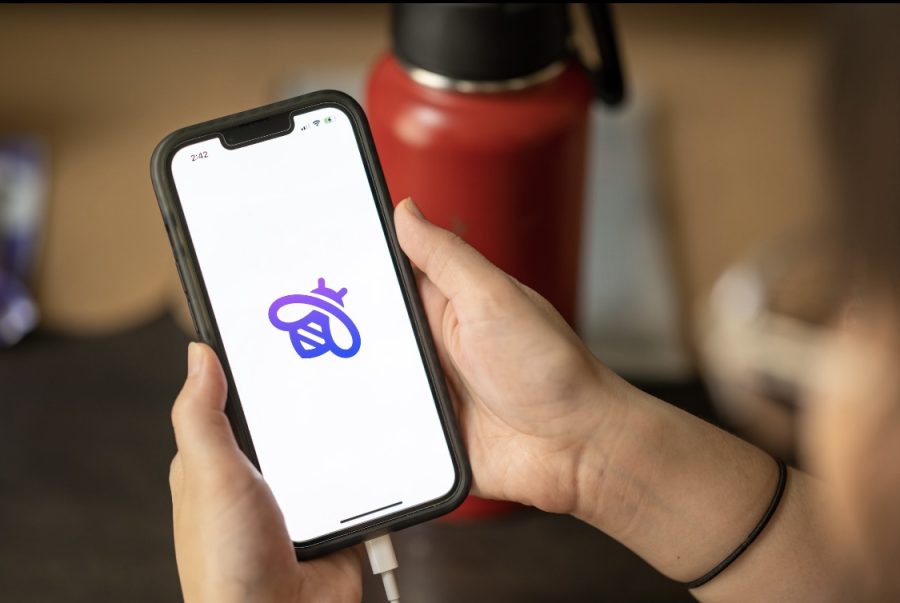The Problem With Fizz: Campus’ New Anonymous Social Media Platform
Students at Settle University are using Fizz.
Gone are the days of Seattle University confessions Instagram pages, surely killed off by the arrival of the anonymous social media platform “Fizz” to campus. Though innocently designed as a place for crushes, confessions and polls behind the veil of anonymity, Fizz has also quickly developed as a place for harassment, stigma and bullying.
Many students living in the dorms received a pamphlet under their doors advertising the shiny new social media app. The flier featured memes about Rudy the Redhawk, stats boasting a 95% usage rate among students at Stanford, Pepperdine and Dartmouth as well as a QR code to download. Fizz ambassadors were seen around campus handing out donuts, and a number of students were recruited via Instagram to promote the app.
Eric Tufts, a second-year communication and media major who runs the Instagram account @bunnies_su, was reached out to by Fizz and posted about the app. Offered $25 for a post on his story and main feed, Tufts was hesitant at first, though after some research decided to make his bunny page profitable.
Put into a large GroupMe chat filled with other Seattle U students, Tufts was provided with a graphic and details on when to publish the Fizz posts. Tufts was surprised by how big the marketing push was.
“They reached out to other gimmick accounts like mine, as well as some of the athletes,” Tufts said. “It seemed like they tried to get everyone they could.”
Tufts has 128 followers at the time of this article’s publication, and his work with Fizz marked the first sponsored content he has ever posted. The Seattle U launch campaign won Tufts and many others over. Though he is now a frequent user of the Fizz app, when asked about whether he feels like it’s working, he made sure to note that it depends on what you mean.
Reminiscent of other anonymous apps like Yik Yak, Fizz sets itself apart by being specific to college students and individual campus communities—in order to create an account you have to register with your university-provided Microsoft credentials.
“The app has been very active, and in regards to whether it is working or entertaining, it definitely depends on how you define those things,” Tufts remarked.
There is no data available yet about the app’s usage at Seattle U, though, for a school with an undergraduate population of 4,301, the app is far from a dead space. The current most popular post on Seattle U’s Fizz depicts a group of orangutans sitting around a table with the caption, “UCOR group discussions be like,” and has 1,100 upvotes.
Students are able to sort what they want to see in their feeds by top (all time, weekly or daily), Fizzin (trending) or new. The system works through up voting and down voting. Typically, the top posts are memes or sexually suggestive content, but the underside of Fizz can be a minefield of negativity.
Andrew Fletcher, a third-year computer science and business double major and Seattle U Chess Club president, has been the target of harassment and bullying on the app without even having downloaded it. As the app is not yet available for Android, Fletcher has received screenshots from his friends of Fizz posts about himself.
As the collegiate ambassador for Chess.com at Seattle U, Fletcher has a very active Instagram page. Often referred to as “chess man” on the app, Fletcher is quick to respond via his Instagram story when Fizz posts are made about him.
“For the people who are making fun of me, it’s mean, but I try not to let that affect me. Thankfully, I have more people backing me up than hating on me,” Fletcher said.
Fletcher went to Rhein Haus Friday night and a Fizz post was made that included a photograph of him on his walk over, taken unbeknownst to him. The caption read “!Attention! chess man on his way to Rhein.”
Stalked and poked fun at, this sort of bullying is not isolated to Fletcher.
“There were a few posts talking about my friend’s appearance, bullying him and making fun of the way that he looks,” Fletcher said.
He believes the reason people feel so comfortable posting things on Fizz is because of the anonymity they can hide behind. Dining hall workers, student-athletes and people struggling with homelessness and addiction near campus can be counted among those who have become targets of cruel humor on Fizz.
Robert Castaneros, a third-year political science major at Stanford, has had his perspective about Fizz change over its lifespan on the Stanford campus—the place where it was founded in 2021.
Noting a demarcation in the different ways in which Fizz can be used, Castaneros mentioned posts about events or parties, as well as things like missing laptops; however, not all Fizz content was the same.
“There are a lot of different kinds of posts there, a lot of them negative,” Castaneros said.
When asked to clarify the striking statistic that Fizz is used by 95% of Stanford students, Castaneros confirmed that Fizz has a huge relevance on campus and has become important for getting the word out about things.
The Seattle U-relevant memes resonate with Castaneros when thinking back to the early days of Fizz. Seattle U is certainly still in its adolescent stage when it comes to Fizz’s presence and culture. A new wild-west landscape of social media, Fizz seems likely to stay.



Fizz-Lover 15
Dec 1, 2023 at 2:39 pm
mmm I think I disagree. Sorry.